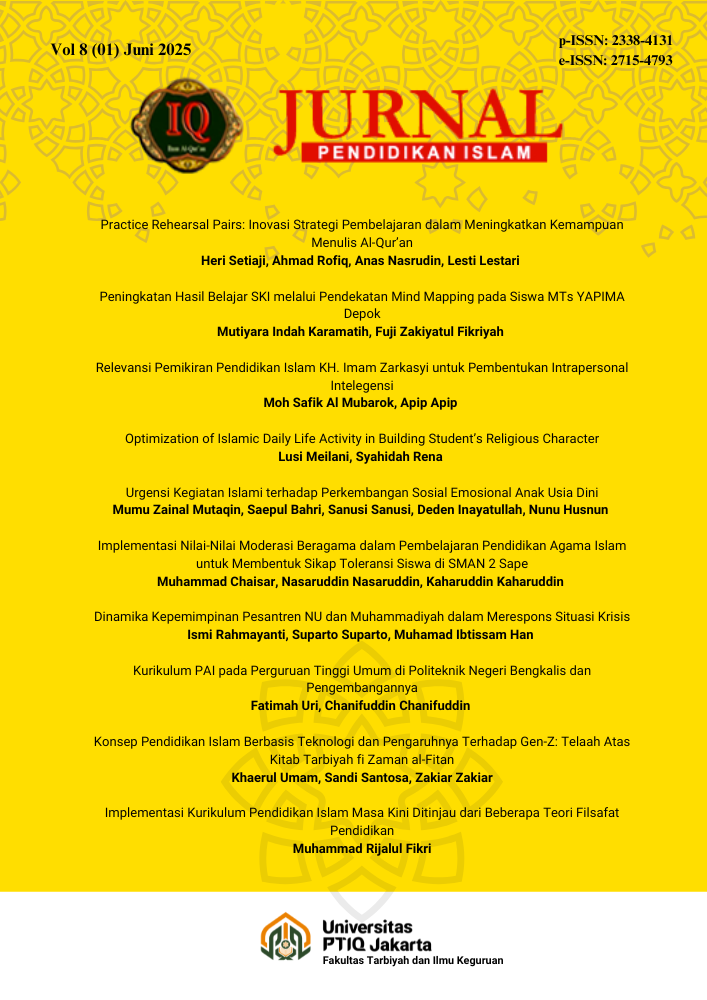Kurikulum PAI pada Perguruan Tinggi Umum di Politeknik Negeri Bengkalis dan Pengembangannya
DOI:
https://doi.org/10.37542/tdsp9t65Keywords:
Islamic Religious Education, Vocational Curriculum, Value Integration, Learning InnovationAbstract
Islamic Religious Education (PAI) in vocational higher education plays a strategic role in shaping students who are not only technically skilled but also spiritually grounded and ethically professional. This study aims to describe and analyze the PAI curriculum at Politeknik Negeri Bengkalis and to formulate development strategies to make it more contextual and transformative. Using a descriptive qualitative approach with a case study method, data were collected through document analysis, in-depth interviews, observation, and open-ended questionnaires. The findings reveal that the current PAI curriculum covers theological, moral, and socio-religious aspects, but lacks full integration with the skill-based and work-oriented characteristics of vocational education. The main challenges include the absence of curriculum standardization, limited interdisciplinary collaboration, and inadequate digital innovation. This study proposes three strategic directions for curriculum development: integration of Islamic values with professional contexts, adoption of digital learning technologies, and institutional curriculum coordination. Consequently, PAI in vocational education can function as a tool for fostering both religious character and professional ethics.


